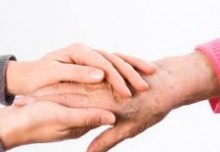 I often offer advice on how to help your older loved one with challenging tasks or how to protect your older loved one from outside threats, but once in a while the advice applies to us all. And it’s not about some complicated algorithms that the “bad guys” of the “dark web” may be using to hack users who stumble upon a site.
I often offer advice on how to help your older loved one with challenging tasks or how to protect your older loved one from outside threats, but once in a while the advice applies to us all. And it’s not about some complicated algorithms that the “bad guys” of the “dark web” may be using to hack users who stumble upon a site.
It’s about your password or the password of an older loved one or other confidential information that has become the currency of the Internet. Notice I used the singular form of the word, password, because too many online users still resort to a single go to password for all the applications they may use on their computers or smart phones.
#1 Threat. You may have been seeing new requirements for passwords in your more secure sites lately, such as no sequential numbers, a mix of numbers and letters and other characters for a password to qualify. The reason is simple – easy passwords are easy to hack, and some of us have been making it more than easy. The most common password, used by over 2.5 million on-line users in 2020 was “123456.” Seriously, and the second most commonly used password for nearly one million users was “123456789.” Really?
#2 Threat. Or if you see a post that promises to give you “pictures you won’t find anywhere else on line.” Or even one of the news sites that promises to tell you if you’re a genius with just 12 questions or will show you what child actors look like now 40 years later. There is a host of different forms of these click bait sites, and they may seem relatively more innocuous, because they are just trying to get you to buy an over-rated facial crème or dog food, etc.
#3 Threat. These threats are like Threat #2 on steroids, because they may give hackers access to your most important financial or personal information. Here are the twelve questions you should never answer if asked by an untrusted source or even a “friend:”
• Where did you grow up, attend grade school, etc.?
• What is your favorite color?
• What was your childhood pet’s name?
• What was the street you grew up on?
• Who is your favorite sports team?
• What is your favorite hobby or pastime?
• What was your first car?
• What is your favorite comfort food?
• What was your mother’s name before she married?
• Who was your first employer?
• What was your favorite musical band?
• Who is your best friend?
You may be asked more than one of these by an untrusted source, and they may be the final keys that allow internet scammers to unlock your web-based safe – on-line bank account, investment funds, and more. Your parents may have cautioned you about talking to strangers when you were very young…that still holds for advice to your parents now.
Charlotte Bishop is a Caregiver Coach, an Aging Life Care Advisor, a Geriatric Care Manager and founder of Creative Care Management, certified professionals who are geriatric advocates, resources, counselors and friends to older adults and their families in metropolitan Chicago. She also is the co-author of How Do I Know You? A Caregiver’s Lifesaver for Dealing with Dementia.







